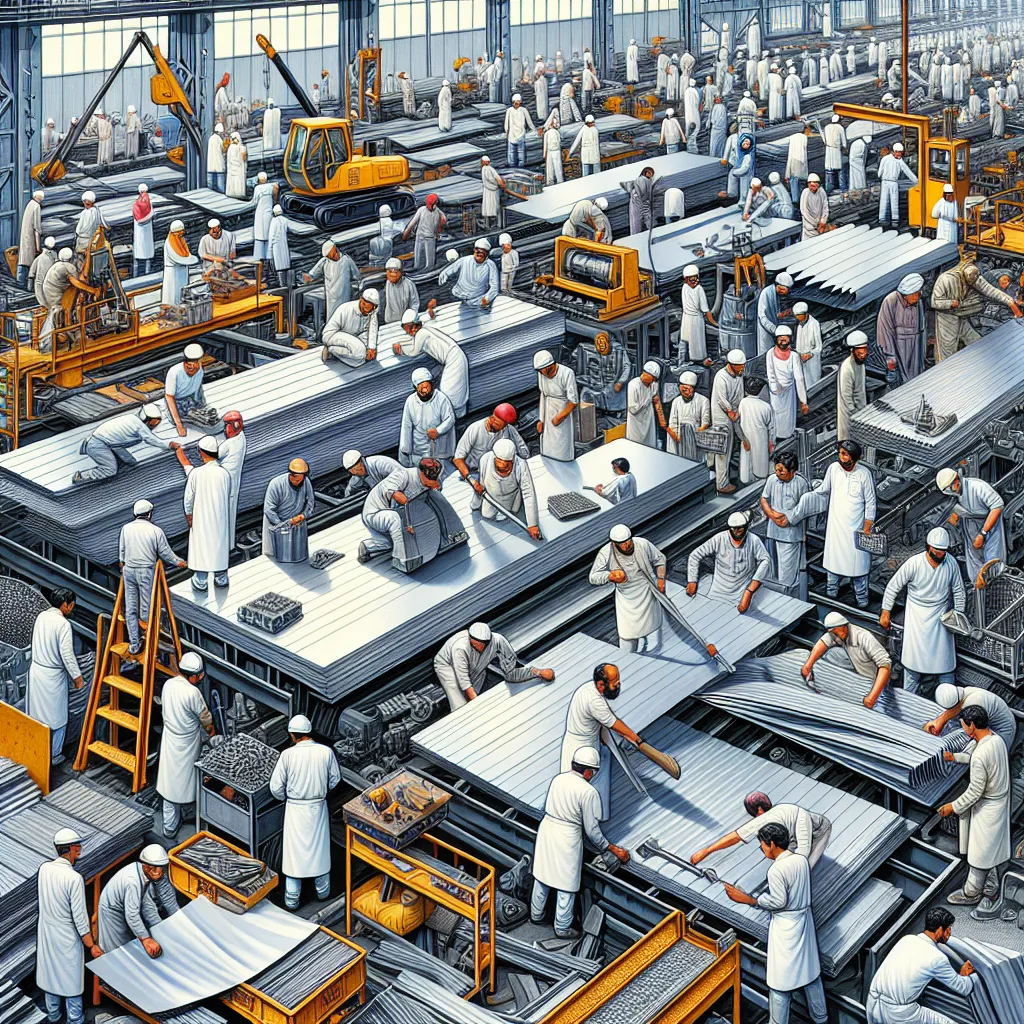Exploring the Versatility of Steel Sheet Metal
Exploring the Versatility of Steel Sheet Metal
Introduction
Steel sheet metal is a highly versatile material that plays a critical role in various industries, including construction, automotive, aerospace, and manufacturing. It offers numerous advantages, such as strength, durability, and cost-effectiveness, making it a popular choice for various applications. In this article, we will delve into the world of steel sheet metal, exploring its properties, manufacturing process, and the diverse range of applications it serves.
Properties of Steel Sheet Metal
Steel sheet metal is primarily composed of iron with a small percentage of carbon. Its properties can be modified by varying the carbon content and adding other alloying elements such as manganese, chromium, and nickel. Some of the key properties of steel sheet metal include:
-
Strength:
Steel sheet metal exhibits excellent strength, allowing it to withstand heavy loads and resist deformation. -
Durability:
Due to its strength and resistance to corrosion, steel sheet metal is highly durable and can withstand harsh environmental conditions. -
Flexibility:
Steel sheets can be easily formed into various shapes and sizes, making them suitable for different applications. -
Thermal conductivity:
Steel has good thermal conductivity, allowing it to efficiently distribute heat. -
Electrical conductivity:
Steel is also a good conductor of electricity, making it useful in electrical applications.
Manufacturing Process
The manufacturing process of steel sheet metal involves several steps:
-
Steelmaking:
The process begins with the production of raw steel by melting iron ore in a blast furnace. The impurities are removed, and alloying elements are added to attain the desired properties. -
Casting:
Molten steel is cast into large slabs, which are then rolled into thinner sheets. -
Hot rolling:
The slabs are heated and passed through a series of rolling mills to reduce their thickness. This process also improves the mechanical properties of the metal. -
Cold rolling:
The hot-rolled sheets are further processed through cold rolling mills to achieve the desired thickness, surface finish, and dimensional accuracy. -
Finishing:
The sheets may undergo additional treatments such as pickling, galvanizing, or coating to enhance their corrosion resistance or aesthetic appeal.
Applications of Steel Sheet Metal
Steel sheet metal finds extensive use in various industries due to its versatility. Some of the common applications include:
Construction
In the construction industry, steel sheet metal is widely used for:

- Roofing and cladding
- Structural components
- Floor decking
- Facades
- Reinforcement bars
Automotive
Steel sheet metal is a crucial component in the automotive industry, contributing to the production of:
- Car bodies
- Chassis
- Doors and panels
- Exhaust systems
- Engine components
Aerospace
The aerospace industry relies on steel sheet metal for:
- Aircraft structures
- Wings and fuselage
- Interior fittings
- Engine parts
- Landing gear
Manufacturing
Steel sheet metal plays a vital role in the manufacturing sector, where it is used for:
- Machine enclosures
- Toolboxes
- Cabinets
- Shelving
- Conveyor systems
Advantages of Steel Sheet Metal
Steel sheet metal offers numerous advantages over other materials:
-
Strength and durability:
Steel is one of the strongest and most durable materials available, ensuring long-lasting performance. -
Cost-effective:
Steel sheet metal is relatively inexpensive compared to alternative materials, making it a cost-effective choice for many applications. -
Recyclable:
Steel is highly recyclable, contributing to sustainable practices and reducing environmental impact. -
Corrosion resistance:
Properly coated or galvanized steel sheets have excellent corrosion resistance, extending their lifespan in harsh environments. -
Fire resistance:
Steel is inherently fire-resistant, providing enhanced safety in various applications.
Conclusion
Steel sheet metal is a versatile material that offers a wide range of benefits, making it indispensable in numerous industries. Its strength, durability, and cost-effectiveness make it a preferred choice for applications in construction, automotive, aerospace, and manufacturing. With ongoing advancements in steel manufacturing techniques, the potential for steel sheet metal continues to expand, ensuring its relevance in the future.
